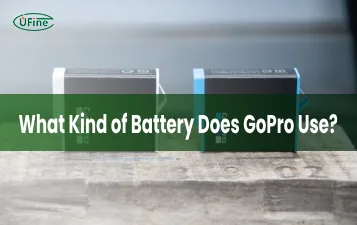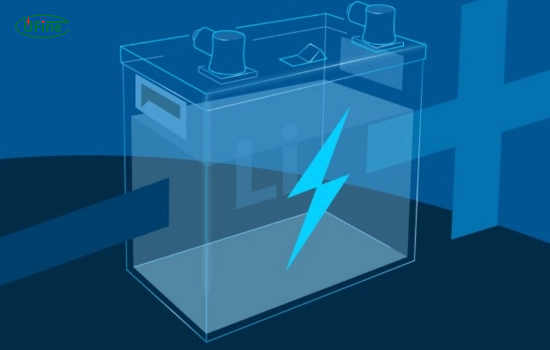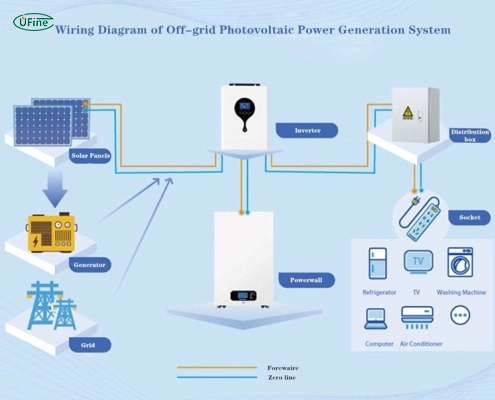A 5kWh battery is a powerful energy storage solution that has gained significant attention recently, particularly with the growing demand for renewable energy sources. Understanding the functionality, specifications, and potential applications of a 5kWh lithium-ion battery is crucial for making informed decisions as the world shifts towards a more sustainable future. This comprehensive guide will explore the critical aspects of a 5kWh battery, its benefits, limitations, and frequently asked questions to help you make an informed decision.
Part 1. What is a 5kWh battery?
A 5kWh battery is a type of battery that can store 5 kilowatt-hours of energy. This capacity allows it to provide power for various applications, from residential energy systems to backup power solutions. A 5kWh battery can supply approximately 5 hours of electricity for a load of 1kW, depending on the efficiency and discharge rate of the battery.
Key Specifications of 5kWh Batteries
5kWh batteries come with several specifications that dictate their performance and utility. Some of the key specifications include:
- Voltage: Most 5kWh batteries operate at 48V, commonly used in solar energy storage systems.
- Capacity: Typically, they provide a capacity of 100Ah.
- Cycle Life: Ranges from 3000 to 6000 cycles, making them suitable for long-term use.
- Depth of Discharge (DoD): Many models allow up to 100% DoD, enabling users to utilize all stored energy without damage.
Part 2. Types of 5kWh batteries
Understanding the different types of 5kWh batteries can help you make an informed choice:
- Lithium-Ion: These are the most popular due to their high energy density, efficiency, and long lifespan. They are lightweight and suitable for various applications, from home energy storage to electric vehicles.
- Lead-acid batteries are more affordable and have been used by consumers for many years. However, they are heavier and have a shorter lifespan compared to lithium-ion batteries. They are often used in backup power systems and off-grid setups.
- Nickel-metal hydride (NiMH) batteries Offer a balance between cost and performance. They are less common but still used in specific applications, like hybrid vehicles.
- Flow Batteries: These batteries are ideal for large-scale energy storage. They allow for easy scalability and long cycle life, making them suitable for industrial applications.
Part 3. Benefits and limitations of using a 5kWh battery
Benefits
High Energy Density
One of the most notable advantages of a 5kWh lithium-ion battery is its high energy density, allowing it to store more power in a smaller footprint. This makes it ideal for limited-space applications like electric vehicles or residential energy storage systems.
Longevity
Compared to traditional lead-acid batteries, 5kWh lithium-ion batteries offer a longer cycle life, typically from 3000 to 6000 cycles. This means that they can be charged and discharged numerous times before needing replacement, making them a more sustainable and cost-effective solution in the long run.
Efficiency
Lithium-ion batteries, including the 5kWh model, boast a high round-trip efficiency, often reaching up to 95%. This means minimal energy is lost during the charging and discharging, resulting in a more efficient energy storage system.
Limitations
Initial Cost
One of the main drawbacks of 5kWh lithium-ion batteries is their higher upfront cost than traditional lead-acid batteries. However, the long-term benefits, such as a longer lifespan and higher efficiency, can offset the initial investment over time.
Temperature Sensitivity
Lithium-ion batteries, including the 5kWh model, can be sensitive to extreme temperatures, affecting their performance and lifespan. Proper installation and thermal management are essential to ensure optimal operation and longevity.
Part 4. Applications of 5kWh batteries
5kWh batteries are versatile and can be used in various applications, including:
- Residential Solar Energy Storage: These batteries, when paired with solar panels, store excess energy generated during the day for later use, reducing reliance on the grid and saving on electricity bills.
- Backup Power Supply: In a power outage, a 5kWh battery can provide backup electricity, ensuring continuous power supply for essential appliances and devices.
- Off-Grid Systems: For locations without access to the electrical grid, a 5kWh battery can be a vital component of an off-grid energy system, enabling energy independence and reducing the need for fossil fuel generators.
- Electric Vehicles: While unsuitable for large vehicles, a 5kWh battery can be used in electric bikes or small electric cars, enhancing their range and reducing emissions.
Part 5. How to choose the correct 5kWh battery?
Choosing the correct 5kWh battery involves considering several factors:
- Energy Needs: Calculate your daily energy consumption to determine the battery capacity required. A 5kWh battery might be perfect for moderate energy needs.
- Budget: While lithium-ion batteries are more efficient, they are also more expensive. Consider your budget and the total cost of ownership over the battery’s lifespan.
- Space Availability: Ensure you have adequate space for installation. Some batteries are more compact, which is ideal for limited spaces.
- Warranty and Lifespan: Check the manufacturer’s warranty and the battery’s expected lifespan. A more extended warranty often indicates confidence in the battery’s durability.
- Use Case: Consider the specific application. For instance, prioritize energy density and weight if you need a battery for an electric vehicle.
Where to Buy a 5kWh Battery?
When looking to purchase a 5kWh battery, there are several options available. Many online retailers and specialized battery manufacturers offer a range of models. One notable option is Ufine Battery, which provides various energy solutions, including 5kWh batteries. They offer high-quality products and excellent customer service, making them a reliable choice for consumers.
Part 6. FAQs
-
How long can a 5kWh battery last?
A 5kWh battery’s discharge duration depends on the load. At a constant 1kW load, it can last approximately 5 hours. -
Can I use a 5kWh battery for off-grid applications?
Yes, a 5kWh battery is ideal for off-grid systems. It provides vital energy independence and reduces reliance on fossil fuel generators. -
How often should I replace my 5kWh battery?
Typically, a 5kWh lithium-ion battery can last up to 10 years or more, depending on the number of cycles and depth of discharge utilized. Regular maintenance and proper usage can extend the battery’s lifespan. -
Can I connect multiple 5kWh batteries?
You can parallel multiple 5kWh batteries to increase total energy storage and output capacity. This allows for greater flexibility and scalability in your energy storage system. -
What is the average cost of a 5kWh battery?
The cost of a 5kWh lithium-ion battery varies by manufacturer and technology, but generally, it ranges from $3,000 to $5,000. However, it’s essential to consider the long-term benefits and potential savings when investing in energy storage.
Related Tags:
More Articles

What Battery Powers Your GoPro?
Learn all about GoPro batteries - compatibility, runtime, charging tips, and how to extend battery life for longer shoots.
What Is a Disk Battery? A Simple Guide for Non-Tech Users
A disk battery is a small, round cell used in watches, remotes, and other electronic devices. It delivers steady power for compact, low-drain devices.
What Battery Powers a Space Heater?
Discover the type of battery that powers space heaters and learn how to choose the right one for efficient heating in your home or office.
What Is an LR14 Battery? Learn About This C-Size Cell
The LR14 battery, also known as a C battery, delivers steady power. Learn its specs, uses, lifespan, and how it compares to other battery types.
Watch Battery Dimensions Chart: Sizes, Voltages, and Equivalents Explained
Understanding watch battery dimensions helps you choose the right size, voltage, and equivalent model to keep your watch running safely and smoothly.





